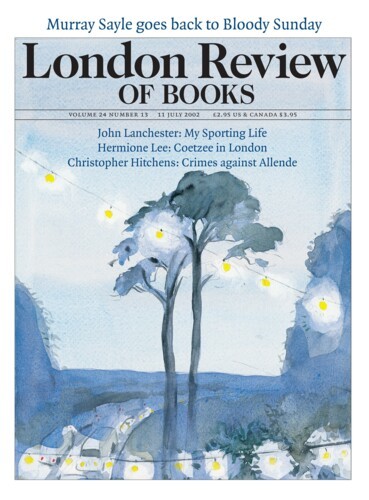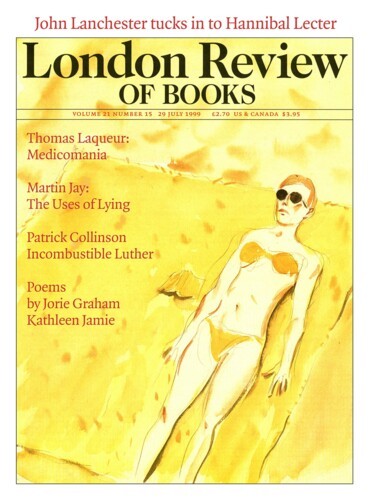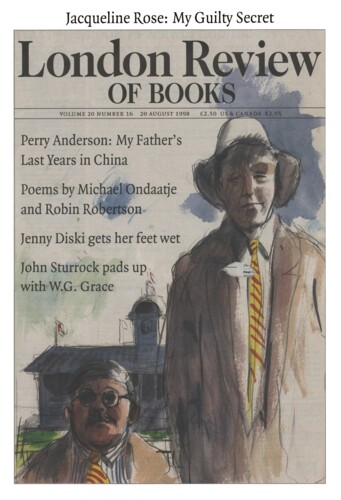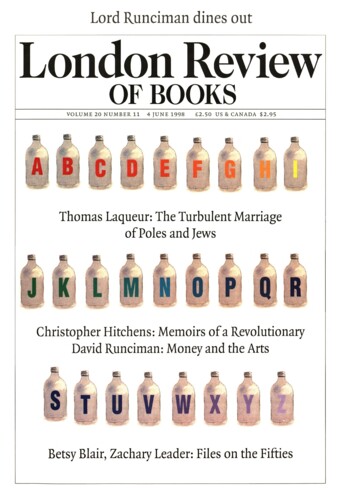So Amused: Fay Weldon
Sarah Rigby, 11 July 2002
There is an unusual emphasis on ghosts in Fay Weldon’s autobiography. Early on, angels appear to her mother in the local park; a woman in white sits on the six-year-old Weldon’s bed; and ghosts unaccountably darken the rooms at her New Zealand high school (a sort of advance haunting, she now thinks, by the woman who was to be killed nearby in the murder dramatised in the film




